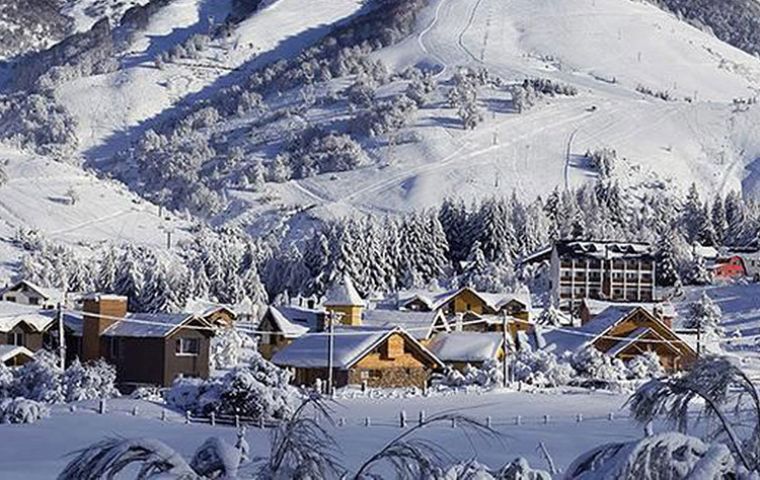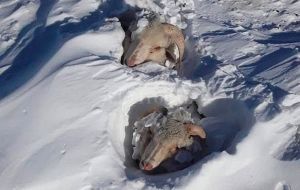MercoPress. South Atlantic News Agency
Argentine Patagonia provinces under a blanket of snow
 A blanket of snow is covering Patagonia provinces restricting vehicle circulation and has even brought down several high tension power towers
A blanket of snow is covering Patagonia provinces restricting vehicle circulation and has even brought down several high tension power towers Continuous snowfalls have blanketed Argentine Patagonia provinces together with extremely low temperatures, in what is considered the worst winter since the nineties, according to the Argentinean Meteorological System. The meter-high snow is threatening agriculture, livestock and has interrupted traffic.
“This is an atypical winter with great snow storms. Since the nineties there was a tendency to lesser snow precipitation but this year climate conditions have even caused snow falls in certain areas of Patagonia, unaccustomed to such extremes”, according to weather experts.
Temperatures have been much lower than normally and have remained below zero for several days running which contributed to an extreme wind factor. Some of these “persistent snowfalls” in the provinces of Rio Negro, Chubut and Neuquen forced the meteorological office to release warnings for this Patagonian region plus cetral Mendoza and the southern tip of the Buenos Aires province.
However, what could have been a great tourist season, because of the pandemic emergency, winter sports are limited in the midst of a restricted season which is the economic heart for many Patagonian resorts.
In the province of Rio Negro local authorities report regularly on roads' conditions, mostly under a meter high of snow, an impediment for circulation in provincial and national highways.
But since circulation is much limited because of the pandemic, snow accumulates higher than usual since there are few vehicles to press down the blanket.
Anyhow the province declared a state of emergency, and agriculture disaster, because farm production in the area has diminished anywhere between 50% to 80%.
In neighboring Chubut, certain areas suffered an extended eight hour blackout following the collapse of some twenty power towers, which could not resist the wind or the weight of ice in their structures.
The power blackout also stopped production in one of Argentina's main aluminum smelting plants. Neuquen province also suffered from flash flooding particularly in the capital following a downpour of 31mm in a single day.
In the city of Rio Grande, province of Tierra del Fuego temperatures have been at minus 10`degres Celsius with peaks of minus 20 mainly because of the wind factor. In other cities neighbors published pictures and videos of ice skating in frozen lakes.
“The first three weeks of July have been the coldest in fifteen years. This week early morning temperatures reached minus 21, which have caused many gas and water pipelines to freeze”, according to the local media.





Top Comments
Disclaimer & comment rulesCommenting for this story is now closed.
If you have a Facebook account, become a fan and comment on our Facebook Page!